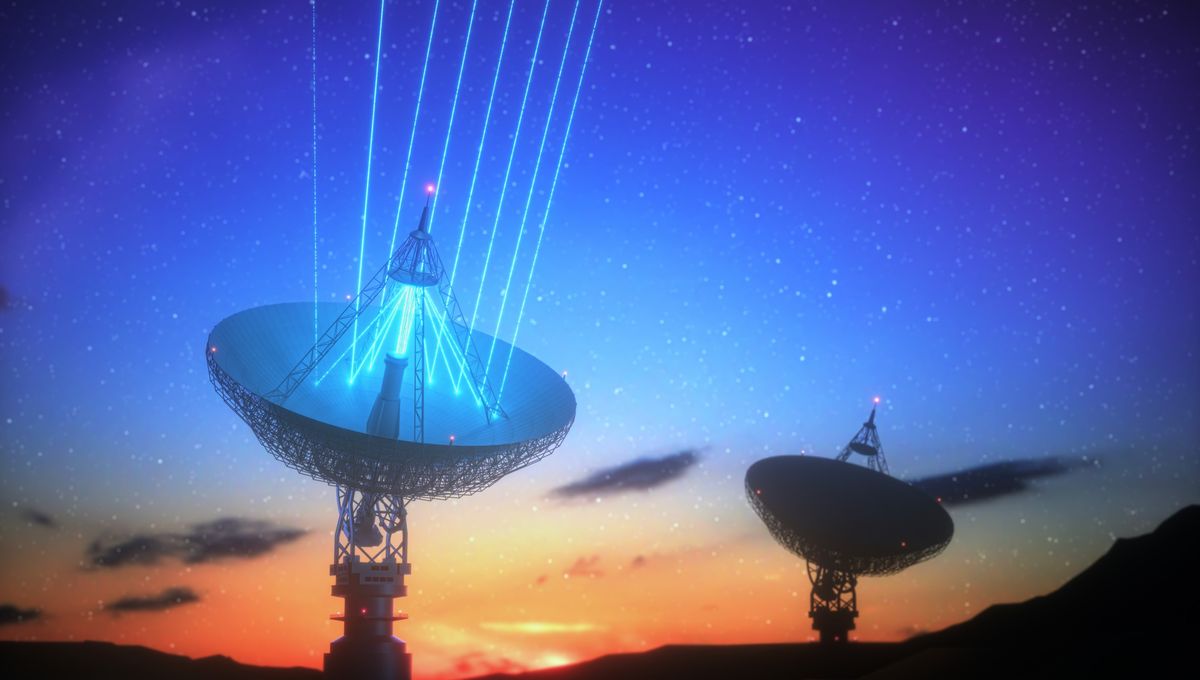
Since the inception of the Search for Extraterrestrial Intelligence (SETI) program, a question has been at the forefront: what happens if we do find a signal from an alien intelligence? Preliminary protocols have been put in place but discussions still rage on exactly how this discovery would impact humans.
In 2020, a paper by Kenneth Wisian and John Traphagan suggested that a risk existed regarding a SETI detection that had not been previously investigated enough. Wisian and Traphagen argued that the danger of discovery was not from the aliens but that the real or perceived advantage of having access to this message would lead to Earthly issues such as espionage, escalating conflicts between nations, and could even end up in all-out war.
This realpolitik approach aimed to model the detection as a practical consideration of what politicians might do. And, as seen in several movies over the last few decades, they envisioned the military quickly taking control of the alien communication. A new study by Jason Wright, Chelsea Haramia, and Gabriel Swiney argues that this approach is mistaken. They say it will be very difficult to keep the detection of a signal from outer space under wrap or exclusive to a single country.
“We argue that when it comes to searching space for radio signals, plotlines like you see in the films Contact or Arrival are unlikely because it’s unlikely for it to be possible to monopolize communication with an alien species if contact is made, and it’s unlikely that such communication would provide information that could be used for military advantage here on Earth,” the authors told IFLScience.
Their argument agrees with the experience of Dr Seth Shostak, senior astronomer at the SETI Institute who was not involved in this study. He suggests that many of the protocols and scenarios that have been worked on don’t actually include how public such a detection would be.
“What actually happens when you get a SETI detection is that the media immediately start calling you up. There is no secrecy in this work. Usually, within a few hours, everyone would know,” Dr Shostak told IFLScience.
For example, in 1997, when a signal was detected coming from outside our atmosphere and appearing genuine alien, it took the New York Times just 15 hours to find out and call the Institute. While the signal turned out to be telemetry from the SOHO spacecraft, the media was already covering it. There were no major conflicts or military escalation, either.
The team is also concerned about the suggestion from Wisian and Traphagen that radio telescopes and SETI researchers should increase their security now in preparation for the detection. Given the number of people that already believe that the government and the military are hiding aliens now, this approach would more likely lead to the scenario the two researchers argue against.
On the other hand, Wright, Haramia, and Swiney believe that the transparency and openness of researchers looking for intelligent civilizations in the cosmos is key to tackling the possible risks that such a detection might pose on the global stage.
“This is what the SETI community settled on doing a long time ago, and it remains the best option. We also argue it’s important to proactively explain SETI science in advance to policymakers and decision-makers to prevent the sort of scenario W&T envision arising from misunderstanding,” the authors told IFLScience.
It is difficult to speculate what signal we might receive from an alien civilization or even how we could discover that there’s life out there, so there’s no simple one-size-fits-all approach to a real SETI signal. Governments and people generally need to be made aware of the possible scenarios.
“There is a whole community working on “post-detection protocols” to make sure we have thought through these issues and have the tools we need to deal with success,” the team explained to IFLScience.
For Shostak, the most important thing that people and politicians should note is that if we were to pick up a signal, there would be no immediate danger. The closest star is just over 4 light-years away, a distance that is impractically large with our current spacecraft. If there’s a civilization that can cross it quickly with ill intentions, why would they be sending a signal ahead of time?
And if we hear something, should we answer back? In 2010, the International Academy of Astronautics (IAA) published the Declaration of Principles Concerning the Conduct of the Search for Extraterrestrial Intelligence. This states that after a compelling detection there shouldn’t be a reply without international consultation.
That said, Shostack suggests that worries about such a reply might be a moot point. Our TV transmissions and airports’ radars have been sending signals out into space for decades. Aliens might simply be sending a message just to say “Hey, we heard you!”
The work by Wright, Haramia, and Swiney is accepted for publication in the journal Space Policy and it is available on the ArXiv.
Source Link: The Political Repercussions Of Detecting Alien Intelligence May Not Go As You’d Think